An official Pride flag will be waved at England’s first World Cup game
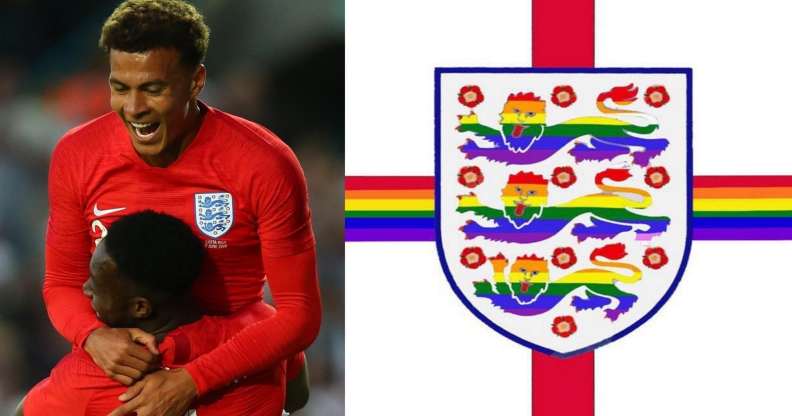
England’s Dele Alli and Danny Welbeck celebrate, and the flag which will be waved on Monday (Alex Livesey/Getty and three lions pride/facebook)
A rainbow Pride flag will be on full display at England’s first World Cup match – with the full support of the Football Association.
The president of the Russian LGBT Sport Federation, Alexander Agapov, hit the headlines when he waved a rainbow flag during the opening game of the tournament on June 14.
And it seems that England is set to go one better, with fans set to fly the team’s Three Lions and St George’s cross coloured in with the Pride rainbow, as shown above.
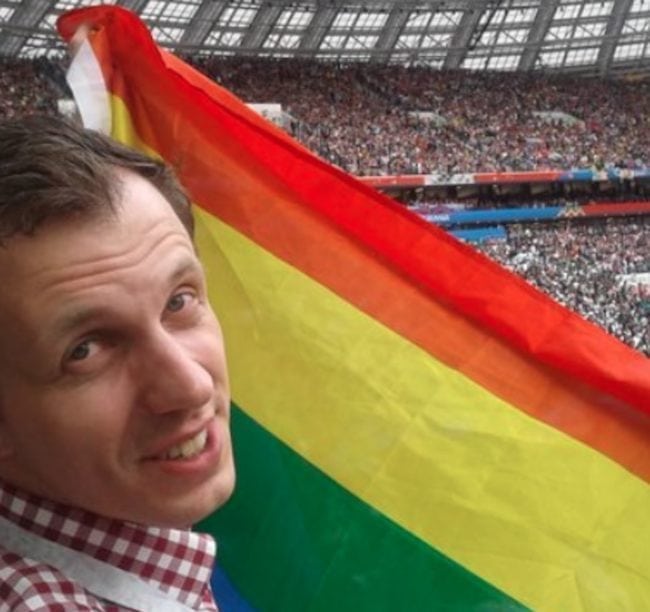
Alexander Agapov with his flag
The one-by-two-metre will be unfurled during the June 18 game against Tunisia by Di Cunningham, organiser of LGBT group Three Lions Pride, according to the Daily Beast.
And, she said, it was with the explicit backing of the authorities.
“The FA definitely wants it to be seen and wants us to go,” said Cunningham. “They have endorsed it.
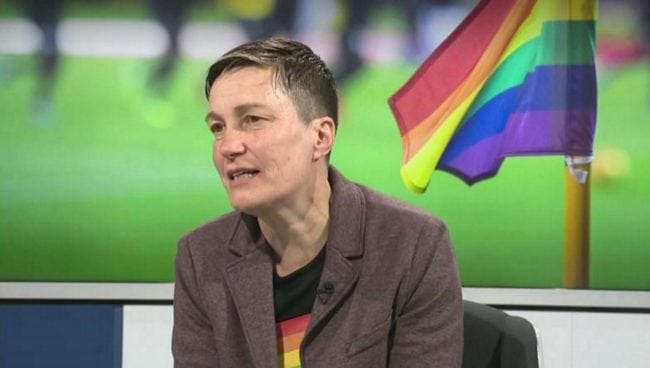
Di Cunningham (di cunningham/facebook)
“To create the banner we had to clear the use of the image’s rights with them. We will also be wearing specially designed scarves with the same design. Both have the FA’s endorsement.
“It’s a very limited run. We are not allowed to sell them or make any more of them. The FA wants the visibility and association with LGBTQ+ inclusion.”
The other Three Lions Pride fans alongside Cunningham will also have rainbow flags to wave.
Before the World Cup, the Government warned fans that “public attitudes towards LGBT+ people are less tolerant than in the UK,” before directing them to guidance published by the Football Supporters’ Federation which “strongly encouraged supporters to “not publicly display your sexuality.”
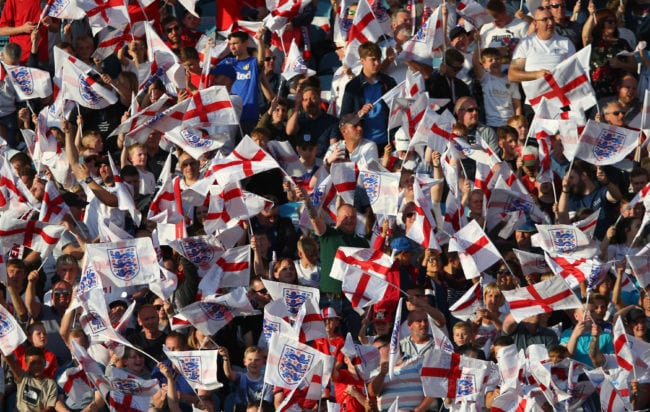
England fans wave flags (Alex Livesey/Getty)
But an FA spokesperson made it clear that the organisation was in support of LGBT visibility from England fans in the Russian stands.
“We have been building links with LGBT+ fan groups by using England home games as a focal point,” they said. “We continue to support their good work, and back their use of a Three Lions rainbow crest at the England games at the FIFA 2018 World Cup.”
Cunningham said that the flags would also make it clear how they felt about FIFA’s decision to hold the most important tournament in world football in a country which has seen anti-LGBT hate crimes double since the introduction of a law banning gay “propaganda”.
The 2013 legislation, which prohibits “propaganda of non-traditional sexual relationships” towards minors, has been condemned by the European Court of Human Rights.
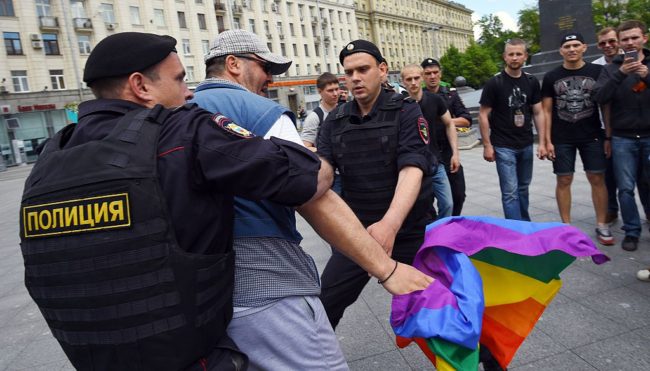
Russian riot policemen detain an LGBT rights activist (DMITRY SEREBRYAKOV/AFP/Getty)
“How can you disenfranchise this set of supporters by siting this prestigious tournament in a country that is hostile to the LGBT community?” she asked.
The next 2022 World Cup is set to be held in Qatar, where homosexuality is illegal.
LGBT activist group Pride in Football revealed before the competition that it had been sent death threats saying that any gay fans going to the World Cup would be hunted down and stabbed.
And a gay France fan was hospitalised before the tournament kicked off, with the victim, named as O. Davrius, suffering a brain contusion and open craniocerebral injury, as well as an upper jaw fracture, after a brutal beating in St Petersburg.
Despite the dangers, however, she praised Agapov for waving a rainbow flag during Russia v Saudi Arabia.
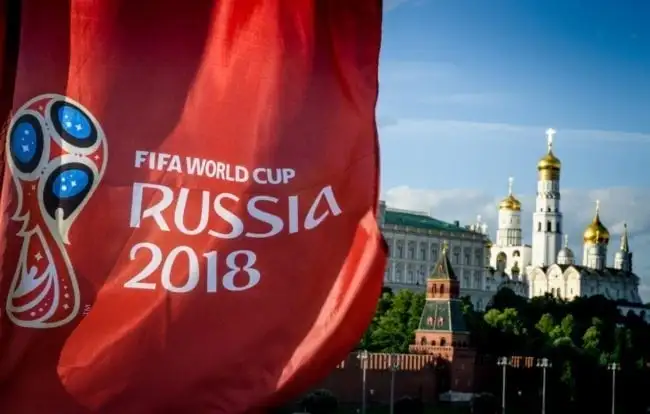
The FIFA World Cup is in Russia for the first time (MLADEN ANTONOV/AFP/Getty)
“It’s an amazing image,” said Cunningham. “Here is a Russian man holding a rainbow flag and not being penalised, among other Russian fans and stewards. Agapov really tested the RFU.
“So, it seems to be the case that it’s safe in stadiums, but LGBT fans don’t live in stadiums. They have to get to and from stadiums. They have to eat, take public transport, and travel in cabs like the French guy who was attacked.”
Cunningham said that her plan to take a brave stand for LGBT rights aside, “tiny numbers” of LGBT England fans had felt safe enough to travel to Russia.
“I could find you hundreds of supporters who said they didn’t want to go,” she added.
“They were really nervous, massively so. That’s been terribly vindicated by the attack on that French guy.”

